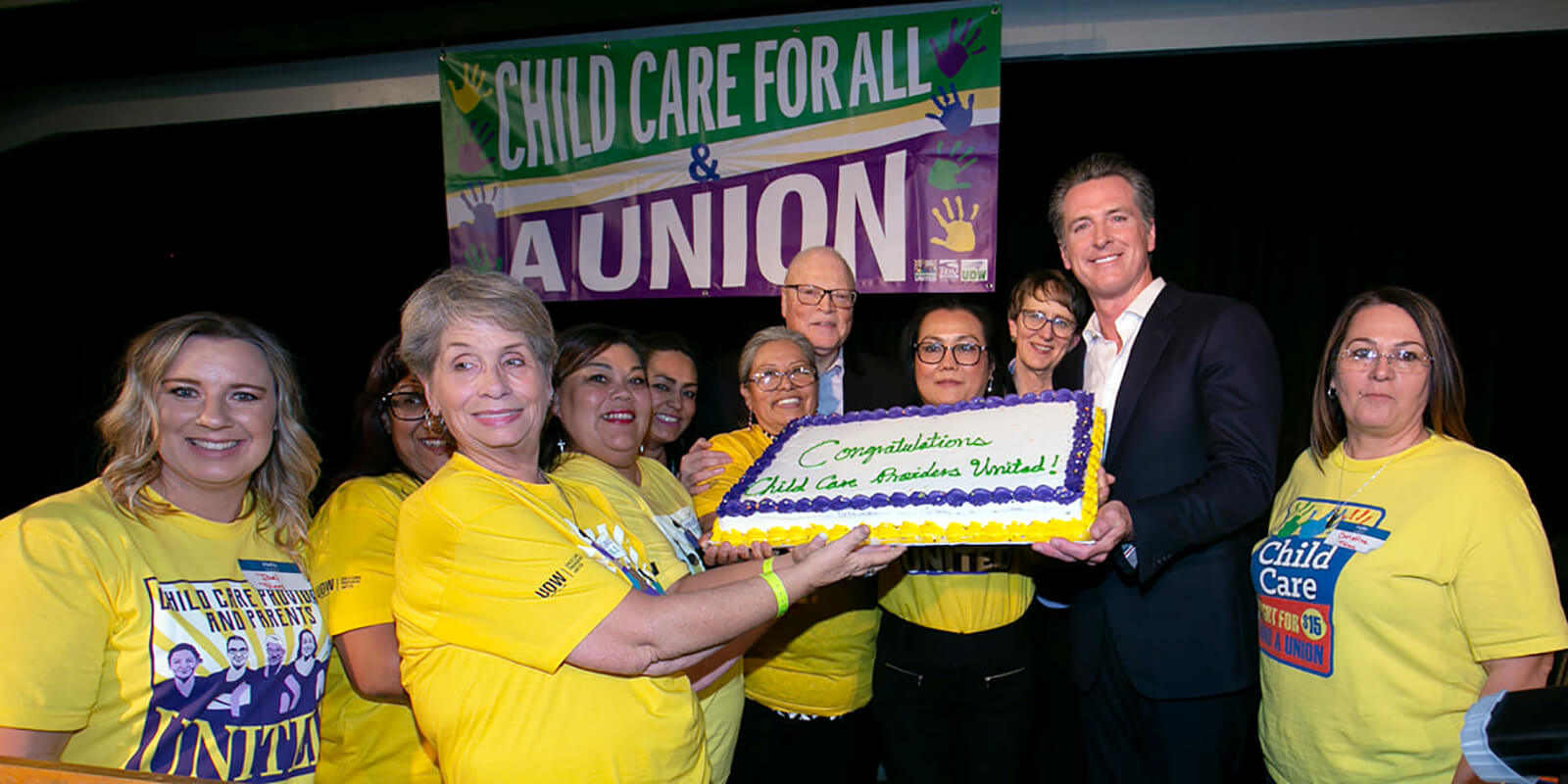Governor Newsom applauded the child care workers for their solidarity and their tenacity in their fight to organize.
“You’ve made this moment happen by believing in each other and believing in this cause, and by holding people like me accountable for delivering on this promise,” said Newsom. “Today, we’re changing the paradigm. You are changing the trajectory of millions and millions of lives by your inspiration and your actions every single day.”
Charlotte Neal, a child care provider and UDW member from Sacramento, California, introduced President Saunders and described the challenges she’s faced running a 24-hour child care center and what being a member of a union will mean to her.
“Most of the kids in my care are on subsidy. Their parents are trying to work their way out of poverty. They need reliable, quality child care to do that. That’s what I provide. But that’s hard to do when I can’t pay my own bills,” Neal said. “Now we are taking control of our destinies and are ready to fix this broken child care system. Every Californian is going to benefit from what we accomplished.”
Early child care providers have a profound impact not only on the children they serve but on parents, communities and the entire state. According to a 2011 paper published by two University of California-Berkeley scholars, who likened the early child care education system to critical infrastructure like roads and public transportation, the $5.6 billion early childhood educator industry “supports $11.1 billion in economic output in the state.”
With the signing of the legislation, Building a Better Early Care and Education System Act (AB 378) by Governor Newsom on Sept. 30, California becomes the 12th state to empower child care providers with collective bargaining rights.
